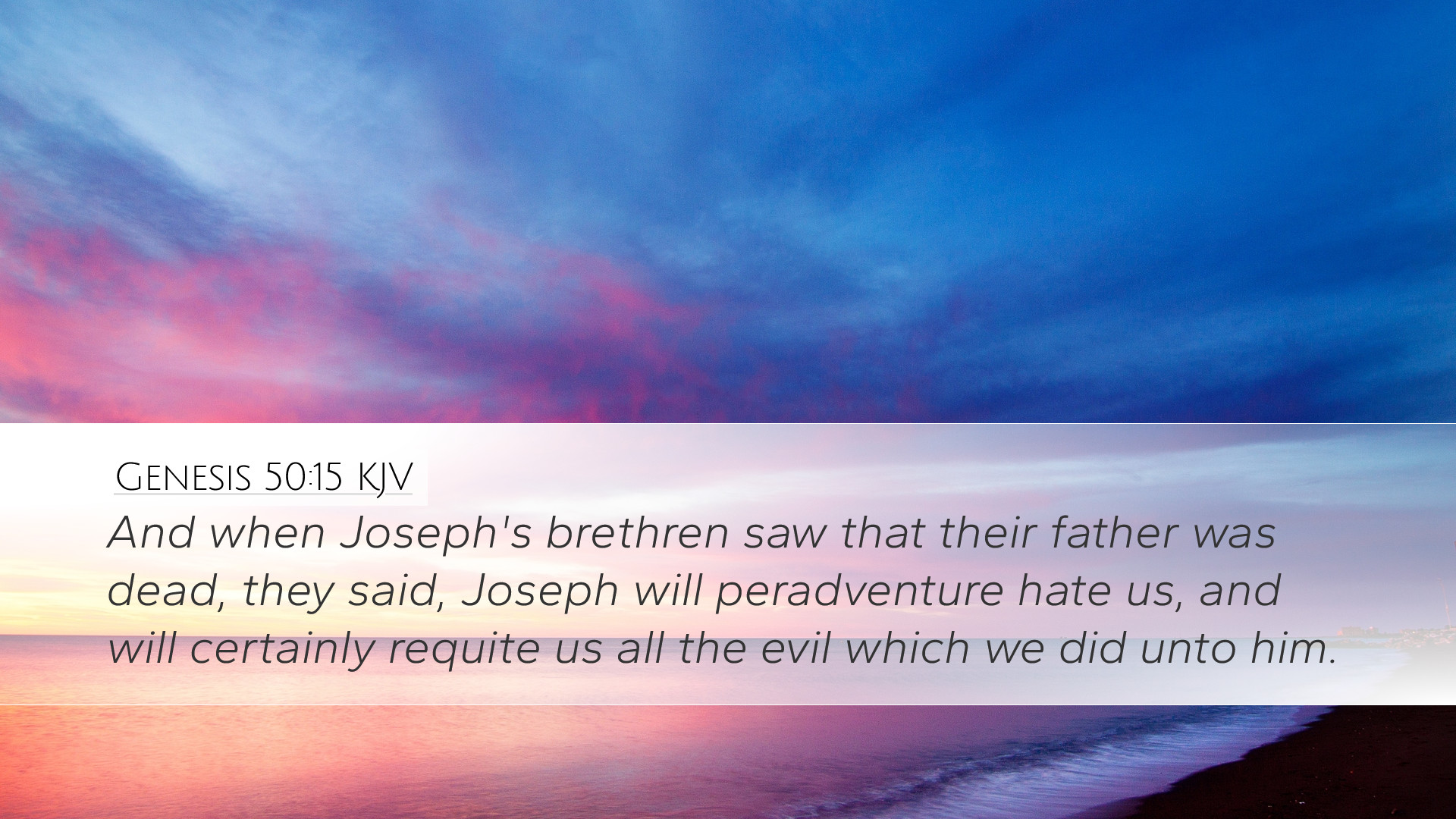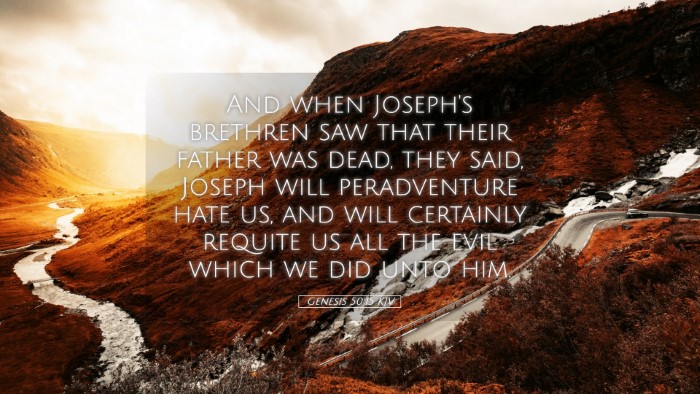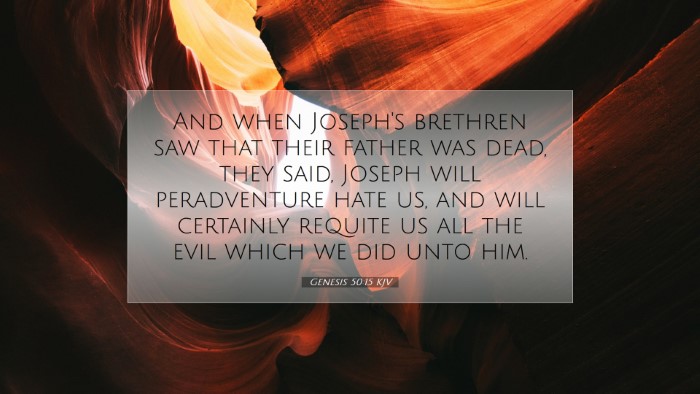Commentary on Genesis 50:15
Verse: "When Joseph's brothers saw that their father was dead, they said, 'It may be that Joseph will hate us and pay us back for all the evil that we did to him.'" (Genesis 50:15 ESV)
Introduction
The concluding chapters of Genesis bring to a poignant close the narrative of Joseph and his brothers. Genesis 50:15 captures a moment of anxiety for Joseph's brothers following the death of Jacob, their father. This anxiety unveils themes of guilt, the fear of retribution, and the complexity of familial relationships. Through this commentary, we aim to delve into the deeper theological implications, historical context, and practical applications of this verse.
The Brothers’ Fear
After Jacob's death, the brothers' apprehension regarding Joseph's potential vengeance reveals their unresolved guilt. As Matthew Henry articulates, the brothers have been weighed down by their conscience for the past years, fearing that Joseph, now in a position of power, may take revenge for their earlier betrayal. This fear is significant; it indicates their lack of understanding of Joseph's true character and forgiveness.
Contextual Analysis
-
Historical Context: Joseph’s brothers sold him into slavery, an act that had deep ramifications for their family dynamic and individual psyches. Albert Barnes notes that the brothers’ perception of Joseph remains marred by their past actions, leading them to project their guilt onto him.
-
Familial Dynamics: This moment illustrates the fragile bonds of family. Adam Clarke emphasizes that even after years of reconciliation and Joseph’s assurance of forgiveness, the brothers still grapple with the weight of their sin, evidencing the complex interplay of remorse and familial love.
-
The Role of Family Loyalty: The brothers' assumption suggests a deep-seated concern for their place within the family unit. Their fear signifies a fundamental misunderstanding of grace and forgiveness that transcends human limitations.
Theological Implications
This verse raises critical theological questions about sin, guilt, and forgiveness. Matthew Henry posits that the brothers' fear is emblematic of mankind's nature—it is easier to believe in retribution than in grace. The fear of Joseph's revenge entails a reflection on how individuals often carry the burdens of their past and struggle to accept forgiveness.
Moreover, the brothers’ reaction underlines the human inclination toward self-preservation above relational integrity. Albert Barnes asserts that when faced with potential consequences, the human heart often reverts to self-serving instincts, demonstrating a profound theological truth about the human condition.
Joseph’s Character and Grace
In understanding the implications of this verse, it is essential to look toward Joseph's character. Adam Clarke characterizes Joseph as a figure of immense grace and forgiveness. Despite his brothers’ treachery, Joseph chose mercy. Verse 15 foreshadows the future revelation Joseph would provide his brothers in the following chapters, expressing, "You meant it for evil, but God meant it for good" (Genesis 50:20).
Joseph's actions serve as an archetype of divine forgiveness, one that echoes the fundamental Christian doctrine of grace. His capacity to forgive sets a powerful precedent for pastoral care and conflict resolution within family structures and the broader community.
Practical Applications
-
For Pastors: This passage serves as an invaluable example of the power of forgiveness and grace in situations marked by betrayal. Pastors can use this to counsel families and individuals wrestling with guilt and fear of retribution, offering hope through the lens of Joseph's example.
-
For Theologians: The fear exhibited by the brothers invites deep reflection on the nature of sin and grace. Theological discourse can explore how narratives like these inform contemporary understandings of repentance and reconciliation.
-
For Students: Students studying Scripture can analyze the psychological dynamics at play in this verse. It serves as a case study in human emotion, guilt, and the path to forgiveness. Exploring Joseph’s response provides insights into the transformative power of grace.
-
For Scholars: Scholars can examine the text's literary structure, noting how Genesis 50:15 acts as a pivot point that encapsulates the brothers' history and foreshadows the resolution of their conflict. This verse also provides a rich ground for exploring themes of moral responsibility and divine providence.
Conclusion
Genesis 50:15 is a profound moment that encapsulates the struggles of human relationships, the conflict between guilt and forgiveness, and the overarching theme of divine grace. Through the lens of Joseph and his brothers, this verse challenges us to confront our own fears of judgment and the capacity of grace to heal relationships. As both a historical account and a theological illustration, it offers timeless truths for individuals grappling with the repercussions of their actions and the hope of redemption that lies in forgiveness.


